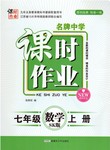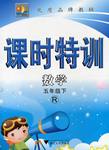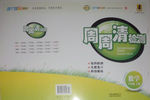题目内容
【题目】假定你是中学生李华。高三将是辛苦忙碌的一年,不管自己还是父母都会很辛苦。每个家长都是望子成龙的,处在这一重要的学习阶段,父母会对你的生活学习倍加关心。现在请你按照以下内容要点给自己的父母写一封感谢信。
内容要点:
1. 感谢父母这么多年来无微不至的关心;
2. 近段时间自己的学习情况及取得的进步,自己会继续努力,希望父母放心;
3. 高三过后一定多帮父母做家务。
注意:
1. 词数100左右;
2. 可以适当增加细节,以使行文连贯;
3. 开头和结尾已给出。
Dear parents,
_____________________________________________________________________________
_____________________________________________________________________________
_____________________________________________________________________________
Love from,
Your son
【答案】
Dear parents,
The hardest time of my life is coming, and I know that you both are very worried about my studies and my life. I can say nothing but thanks to you on this special occasion, because words fail me when I want to express my thanks to you both for the care you have shown me over the past years. These days I have been studying hard and have performed to the best of my abilities in the test. I’ll try my best to accomplish my assignment in the days to come. Please set your minds at rest.
After the college entrance examination, I intend to help you do some housework, which I have seldom done before. And I want to learn to cook in order to prepare a dinner personally for you both.
My dear parents, everything is going well with me. Do relax!
Love from,
Your son
【解析】
试题分析:本文是一篇书信,要求给父母写一封感谢信,文章有几点要求:1.感谢父母这么多年来无微不至的关心;2.近段时间自己的学习情况及取得的进步,自己会继续努力,希望父母放心;3.高三过后一定多帮父母做家务。写文章时要注意以下几点:全面覆盖要点;人称、称呼要符合高三学生的心情和身份;注意不能有语法和时态的错误。
【亮点说明】文章要点齐全,表达思路明确,知识点运用恰当到位,文中使用了非常好的短语和句子为文章增色不少,比如 nothing but,express表达,try my best to尽力,accomplish my assignment,set your minds ,intend to想要,in order to,going well with,words fail me when I want to express my thanks to you both for the care you have shown me over the past years是一句从句,I intend to help you do some housework, which I have seldom done before是非限制性定语从句,Do relax!是强调句。

 名牌中学课时作业系列答案
名牌中学课时作业系列答案 明天教育课时特训系列答案
明天教育课时特训系列答案 浙江新课程三维目标测评课时特训系列答案
浙江新课程三维目标测评课时特训系列答案 周周清检测系列答案
周周清检测系列答案